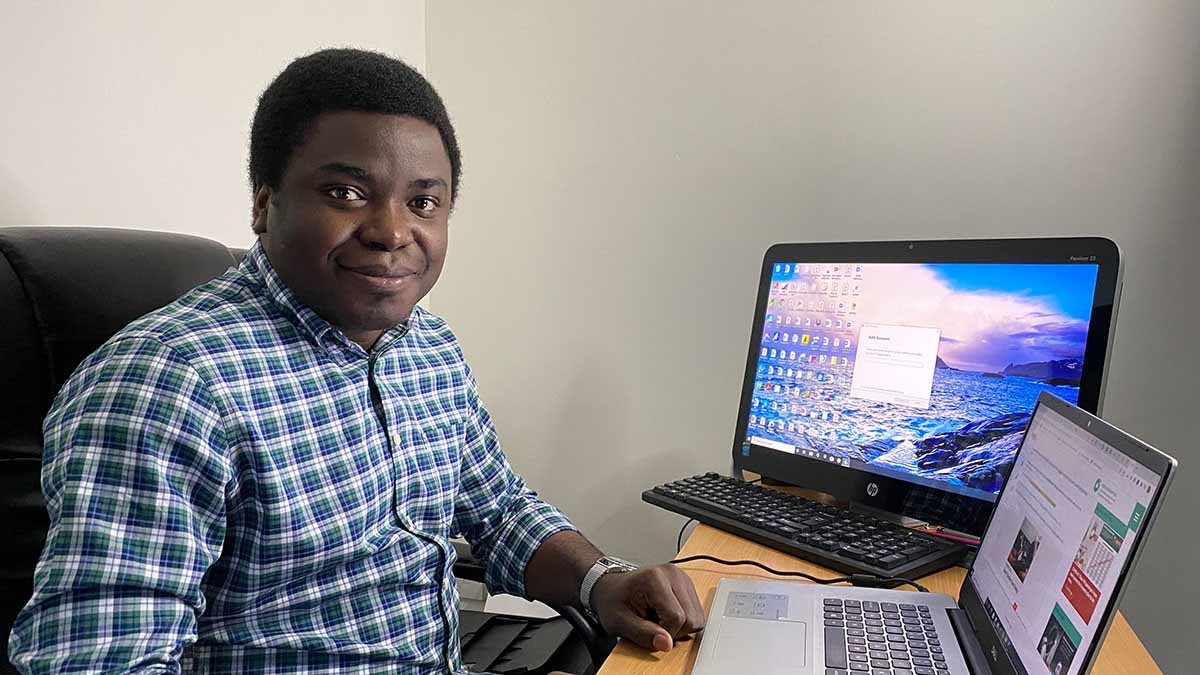Opeyemi Ibukun

Innovation and re-skilling: How IT can help graduates navigate a post-coronavirus world
COVID-19 has caused untold disruption on our lives: From health to human relationships, education, to careers and work-life balance. It has fast-tracked the adoption of information technology in our lives as we seek order and data-driven decisions to make it through this chaotic world we have found ourselves in. This challenge has created opportunities for individuals who can quickly reskill to provide solutions to these challenges. But there is a need to carry along colleagues, friends and families who will struggle to cope or reskill quite as quickly.
My vision for the future is a sustainable world powered by targeted and mapped career development where education and work are revolutionised using technological solutions to create wealth, and reduce inequality. This vision that led me to win the Best Service Award as part of Heriot-Watt's Innovation Challenge 2020, with my idea to create a learning management system, where teaching and learning can be carried out in response to the disruption of academic services in Nigerian Universities caused by COVID-19.
Employer-university collaboration
This is what it what it will look like: let us assume that a student attends a university that uses an all-in-one learning management system integrated with employer-university collaboration (EUC) tools. The student will be able to plan their studies and career development using possible career paths that can be modelled based on their academic and personal data. The EUC tool will suggest and provide tailor-made information on industries and companies or business opportunities where the student has a high probability of success. It will motivate the student by proposing action plans to increase their chances of success, either in employment or through entrepreneurship.
Bridging the gap
Currently, I am a part-time PhD student in petroleum engineering, working on the possibility of generating synthetic cement bond logs that will be used to assess the integrity of oil and gas wells that are to be decommissioned. The idea for targeted and mapped career development was born because of the COVID-19 pandemic that exposed the inadequacies of current LMS systems to cope with disruption to academic services. COVID-19 has likely increased the gap between the workplace and higher education.
In March 2020, I started working on an all-in-one learning management system that is customer and career development focussed to solve the disruption in academic services caused by COVID-19.
The unique selling point of the system is the proctored online exam and mastery or competency features. Students' proficiency in work-related skills can be assessed and tracked. It took several months to design the user interface and experience of the learning management system. We are currently sourcing a software development company to develop it. The idea won the Best Service Award at the 2020 Heriot-Watt University Innovation Challenge. The goal is to launch the product in September 2021.
Be the solution
How can students help? Emerge Education, a European seed fund investor estimates that the market size for businesses that address the global skill gap is $8.5 trillion and over £60 billion for those addressing employer-university collaboration. Other students can help by working or setting up businesses to address the global skill gap.
For students who may not work in this area, you can help by being strategic in their career choices and being proactive about their career choices. Be acquainted with the United Nations sustainable development goals. Pick and work on one or more goals you are interested in. The need for problem-solvers has increased in a COVID-19 and post-COVID-19 world. Be the solution whether you are an employee, researcher, or entrepreneur.
For more information about the Innovation Challenge, visit the Converge website.